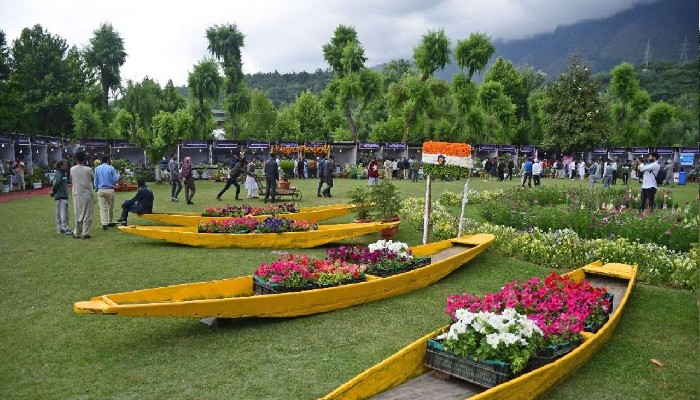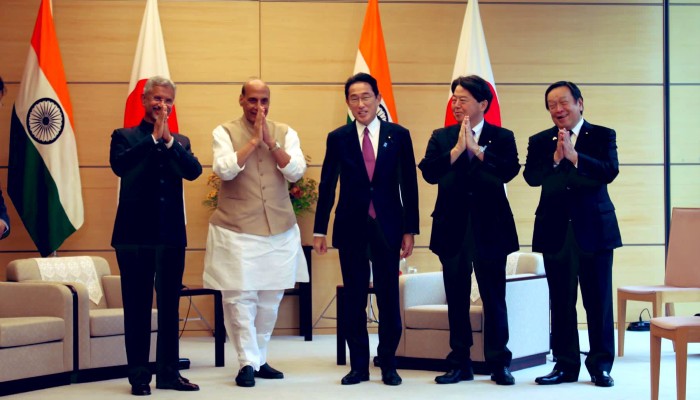In an article, the Diplomat said India’s Agnipath scheme will impact Indo-Nepal relations without giving sound reasons for it; rather, it presented a skewed view of facts around the scheme
Claim:
The Diplomat said Agnipath terms neither provide a long-term job nor financial security. Indian Agniveers will have priority access to jobs in government and elsewhere after four years. The Nepali government is unlikely to be able to provide such preferences. On the contrary, “retired” Agniveers may not be able to join some government services or security forces because of their age upon completing four years of service.
Counterclaim:
Agnipath scheme has been launched after years of discussions and debates among serving and retired armed forces officials. It aims at making the Indian armed force as modern and youthful. In the current scenario where war is always a possibility, the country needs a young and dynamic force.
Under the scheme, youth of age between 17-and-half and 21 will be recruited for Indian armed forces for a short-term service of four years. After serving four years as Agniveers in Indian armed forces, while 25% of them will be retained in army, air force and navy, the rest will be given opportunities to either serve in private industrial houses, public sector undertakings (PSUs) or join the paramilitary forces.
The Ministry of Home Affairs has announced a 10% reservation for Agniveers in central police forces and Assam Rifles with upper age relaxation. The Ministry of Defence has also announced a 10% reservation for Agniveers in the Indian Coast Guard, 16 defence PSUs, including Hindustan Aeronautics, Bharat Electronics, four shipyards and 41 ordnance factories. PSUs under Housing and Petroleum Ministries have also announced hiring Agniveers after their four-year service in the armed forces.
It is true that Agniveers will not get pensions, but they will get a handsome monthly package. Besides, they will receive Risk and Hardship allowances as necessary for three services. At the end of their four-year engagement, they will receive a one-time “Seva Nidhi” package which will include both their contribution and any collected interests thereon as well as a matching contribution.
This package can be used by youth for setting up his own business, startups or anything else. What is more interesting is that Agniveers during their four-year engagement with Indian armed forces, will have the chance to receive training from India’s top universities to improve their abilities, skills, and credentials.
In that scenario, one does not understand why the Nepal government should not allow Nepali Gurkhas to be part of Agniveers. It will be a sheer loss for Nepal if Kathmandu puts a hurdle in Nepali Gurkhas’ recruitment into the Indian armed forces under the Agnipath scheme. Already, a broad hint has been given by Indian Army Chief Gen Manoj Pandey that the vacancies allocated to Nepali Gurkhas will have to be redistributed to others.
It is said that domestic politics of Nepal is preventing the Agnipath scheme in the Himalayan country to be successful and that Nepali politicians want to make it a hot potato till the General Election on November 20. Nepali politicians, particularly of Left-leaning ideology and pro-China leanings, usually reel under anti-India feelings. To expect them to support Agnipath scheme will be like anticipating fish to fly. There are possibilities, a decision over recruitment of Nepali citizens under the short-term Agnipath scheme is taken after a new government is formed in Nepal.
On its part, India has made it clear about the importance of Gurkha soldiers and their recruitment into the country’s armed forces. “We have been recruiting Gurkha soldiers into the Indian Army for a long time and we look forward to continuing to recruit them under the Agnipath scheme,” Ministry of External Affairs Spokesperson Arindam Bagchi said.











 Contact Us
Contact Us
 Subscribe
Subscribe
 News Letter
News Letter
 Instagram
Instagram Youtube
Youtube